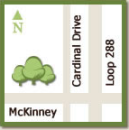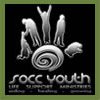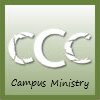One of my most favorite composers is Handel. One reason is his fearless contribution to music and another is his knowledge of the Bible. From his development of the English Oratorio in which “Messiah” came about this Oratorio really makes you think about the wonderful gift of our Messiah. It’s almost too much to Handel not “Handle”, but Handel.
George Frideric Handel was born on February 24, 1685 in Halle, Germany. His parents were George and Dorthea Handel. He was born into a very religious environment. His father’s profession was as a Barber-Surgeon. Ever since Handel was a child he had a strong passion for music, even though his father wanted him to study Civil law. The older he became the more he loved his music. Handel’s father was very angry about Handel’s obsession and tried everything he could to discourage him from any means that glorified music. He even went as far as not allowing Handel to play with any instruments. With all of the restrictions his father had on him, it did nothing but enhance his Passion and, it continued to grow tremendously. His first instrument, which he had secretly brought up to a room at the very top of his house, was the “Clavichord”. He usually played his Clavichord when his family was all fast asleep.
In the 1730’s, Handel came up with a new genre called “The English Oratorio”. This new genre will give him the popularity that he once received for his outstanding opera’s. Maybe even more because it’s origin. The oratorio in general was not new to Music, but it was the English oratorio that had very similar yet very different elements. The use of the Oratorio goes way back to the mid-1500s. Oratorio was one of the latest additions to Catholic sacred Music. The genre was developed in Rome. It was a part of informal worship and, occurred in the oratory of the Church. This is actually the origin of the word “Oratorio”. It was a way to tell the Music was based on a religious topic. Oratorios of the 18th Century lasted for 1½ to 2 hours. The text was very sacred and focused on the bible and many other sacred elements.
Handel’s most famous oratorio is called “Messiah” which also had a libretto by Jennens. This specific oratorio was very unusual compared to his previous oratorios. One reason was because this one did not have only one story line. Instead it unfolds a series of deep reflection on the “Christian Idea” of redemption, which uses texts drawn from the bible (AHWM pg. 458). Composed in 1741, “Messiah” begins with Old Testament prophecies. It then goes on through to the life of Jesus Christ and, all the way to his resurrection. Even though this oratorio was different than his previously written ones it was still very typical Handel, meaning that it consisted of many Handel qualities from previous works. Handel wrote his for this “Oratorio” in 21 Days. This was a very quickly written but well thought out Work of Music. Green says that Handel’s “Messiah” is sometimes referred to as “The Messiah” but, this is incorrect and gives the wrong interpretation of what Handel was intending. “Messiah” was written originally for the Easter and lent season but, became more of a Christmas tradition rather than Easter. This oratorio had 50 produced movements and the structure was in Handel’s normal format, which meant being spilt up in 3 acts. Act 1 begins with a Sinphonia Overture and had a compilation songs telling of Isaiah Prophecy which was: salvation, the Coming of our Messiah, Mary’s virgin birth and so on. The very first solo voice that you hear in this act is an accompanied recitative entitled “Comfort Ye My People” which is taken from a book in the Bible Isaiah 40 versus 1-3. The Recitative is sung by a Tenor. It tells of the coming of the Messiah and the Tenor sings: make straight in the desert a highway for our God which in translation means that those who have cried out unto him should prepare themselves for their God and to break the yokes in their lives. The recitative then goes into an Air called “Every Valley Shall be Exalted” which is really the most promising prophecy. This Air has the perfect text painting and it describes all of the great works the world will see performed by God. This is taken from the same chapter in Isaiah but begins at verse 4 of Isaiah 40 and it says: Every valley shall be exalted, and every mountain and hill made low; the crooked straight and the rough places plain (Bible, Isaiah). The next chorus finishes the scene and comes from Chapter 5 of Isaiah that says: And the glory of the Lord will be revealed, and all people will see it together. For the mouth of the Lord has spoken. This closes out the section of which we heard from the prophet Isaiah. . The Next Scene begins with an accompanied recitative taken from the Books of Haggai and Malachi. These Books also, speak of The Coming of the Lord and talk about his capabilities as the Almighty King. A Bass sings the recitative. The Scenes go on with many excerpts of the book of Matthew, Isaiah, Luke, Haggai, Zechariah and Malachi. Act 2 mainly talks about Christ’s time here on earth and it covers a broader perspective of his actual words sung through airs and a very prominent use of the chorus. This Act brings a lot of the New Testament story to the Forefront. Act 3 talks about God’s promise of Eternal Life (Naxos). Since “Messiah” had its debut it became very popular in London and then soon after all over Europe. It became a traditional work of art showing Handel’s brilliance in composing and being creative enough to make a new genre for English music.
So during this season let’s remember our Savior, and that he is always the greatest gift to the world.














